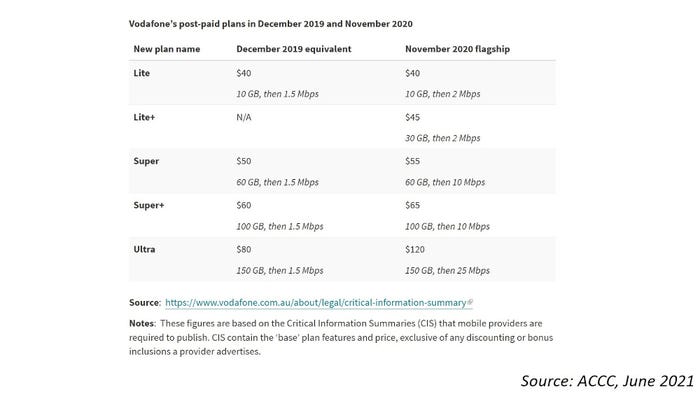It's all kicking off down under after TPG Telecom took issue with price-hike accusations levelled at it by the Australian Competition and Consumer Commission (ACCC).
June 21, 2021

It’s all kicking off down under after TPG Telecom took issue with price-hike accusations levelled at it by the Australian Competition and Consumer Commission (ACCC).
The watchdog asserted in a report published on Monday that all three of the country’s mobile operators, Telstra, Optus and Vodafone – which completed its merger with TPG Telecom last July – are all far too comfortable, and that is reflected in higher prices for end users.
“The ACCC is out of touch to suggest that mobile providers, as commercial businesses, are not competing hard for customers every day. The bottom line is, we are offering better value and a better network experience because we’re able to compete harder for customers after the merger.” said a TPG spokesperson, in a statement sent to Telecoms.com.
In its report, the ACCC published tables comparing the change in cost of the three operators’ various price plans. On the postpaid side, the regulator said it found Telstra has raised prices by between A$5 and A$15 per month. Similarly, Optus has slapped an extra A$6 on the price of all of its contracts. Meanwhile, Vodafone has put its prices up by between A$5 and A$40 per month, although the increases are currently offset by heavy discounts and promotions.

On the prepaid side of things, the ACCC noted that Telstra and Vodafone have reduced the expiry terms on some of their tariffs to 28 days, whereas previously some of them came with expiry terms of 35 days, or in some cases 42 days. The shorter shelf life means that prepaid customers will have to top up their credit more frequently, making it more expensive.
“Our analysis shows that consumers will now be left paying significantly more for a range of mobile phone plans at Telstra, Optus and Vodafone,” said ACCC chair Rod Sims, in a statement. “The behaviour of the three big telcos would suggest they are not concerned about losing customers to rivals.”
Sims did not shy away from alleging that the price rises were precipitated by last year’s merger of Vodafone and TPG.
“The ACCC opposed the merger of TPG and Vodafone because we were concerned it would lead to higher mobile prices, and result in three similar providers with little incentive to compete strongly,” Sims said.
“When markets end up with a smaller group of large look-alike players with stable positions, competition is muted and consumers pay more,” he said.
TPG is not having it though.
“The ACCC has chosen to use data that doesn’t reflect what our customers are actually paying. It has ignored the ongoing promotions for Vodafone and other brands, which are one of the main methods to provide customers with better discounts or inclusions,” said the telco’s spokesperson.
TPG also claimed that the ACCC’s comparison didn’t take into account increased data speeds and 5G access.
“Meanwhile we have continued to invest billions of dollars in more capacity and 5G technology across our mobile network, benefiting more than one million customers since merger,” the spokesperson said.
About the Author(s)
You May Also Like








.png?width=300&auto=webp&quality=80&disable=upscale)


_1.jpg?width=300&auto=webp&quality=80&disable=upscale)


.png?width=800&auto=webp&quality=80&disable=upscale)